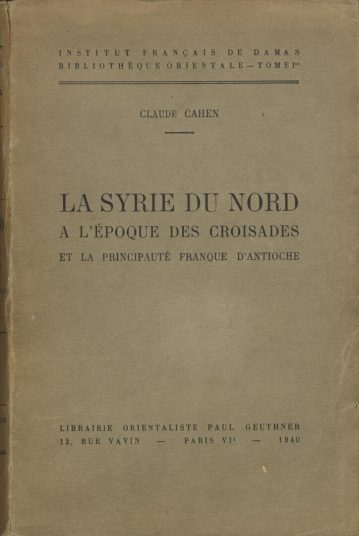La Syrie du Nord a l’Epoque des Croisades et de la Principaute Franque d’Antioche.
Cahen, Claude.
Synopsis
Among the many historical writings devoted to the Crusades, and to the Latin states founded as a result of the Christian conquests, the Kingdom of Jerusalem has always received much greater attention than its northern neighbours of Antioch and Edessa. The Holy City holds a special appeal, and its historical sources are more abundant. Claude Cahen’s scholarly monograph fills this lacuna and makes Antioch probably the most exhaustively studied of any of the crusader states. The Principality of Antioch, founded in the early twelfth century by the Normans of southern Italy, experienced historical developments that were unique. Unlike the Kingdom of Jerusalem, which was populated mainly by Muslims, it was established in northern Syria, a land that was largely Christian and formerly dominated by the Byzantine Empire, a regional power that continued to play an important role at that time.
Written originally as a doctoral dissertation at the University of Paris and completed in 1938, Cahen’s book was only published in 1940 and discusses the major events affecting the state of Antioch, since its creation in the mid-thirteenth century, a period which saw the reaction of the Mamluk forces against the Mongol invasions.
Based on Latin, Arab, Persian, Hebrew, Greek, Syriac and Armenian sources, the historian Claude Cahen focuses particularly on highlighting the rivalry between Franks, Byzantines and Egyptians, who all wanted to strengthen their positions on this strategic territory located at the crossroads between Anatolia, Syria and Mesopotamia. Despite the scarcity of information he had on the subject, the author has also opened new horizons for medievalist researchers by focusing on the economic, social, intellectual and religious life of the inhabitants of this region at the time of the Crusades.






